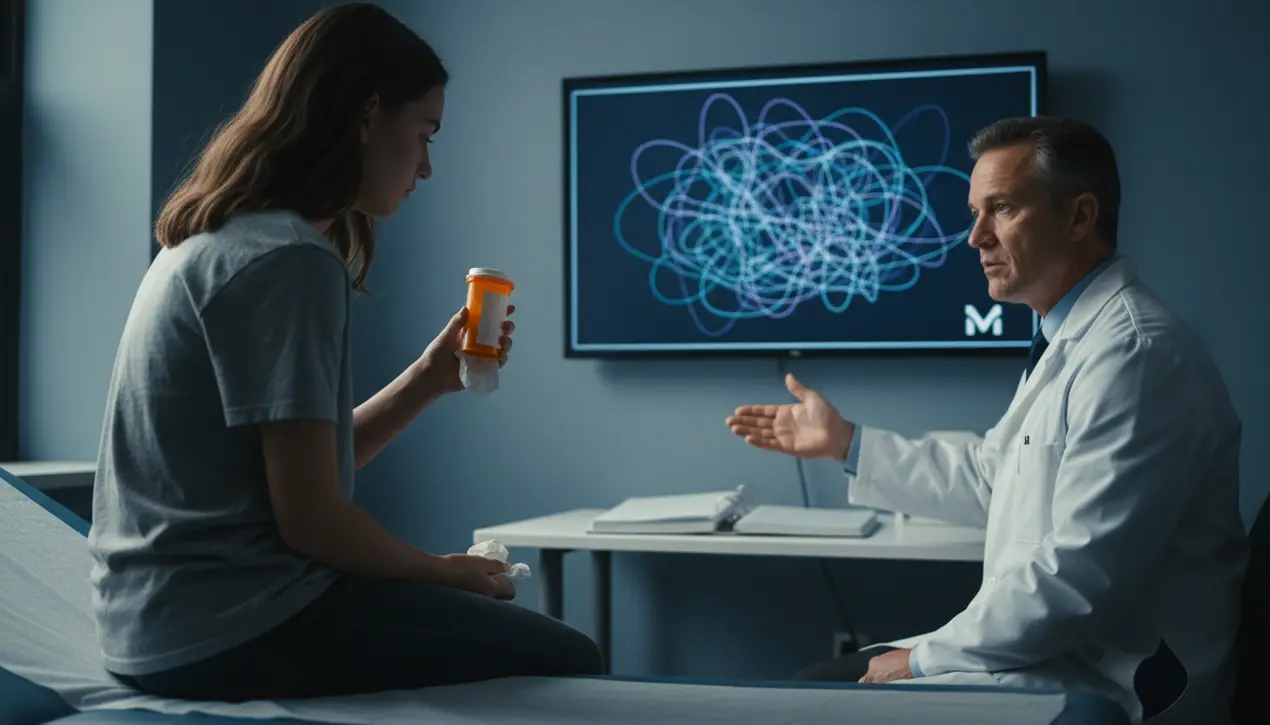- News
- governments-cabinets
- The Politicization of Pills: How the MAHA Movement is Targeting Antidepressants

Politicsgovernments & cabinetsPolicy Agendas
The Politicization of Pills: How the MAHA Movement is Targeting Antidepressants
AN
Anna Wright
10 hours ago7 min read4 comments
In a significant shift, mental healthcare in America is facing a new political front, with common antidepressants becoming a flashpoint in the nation's culture wars. The Make America Healthy Again (MAHA) movement, led by Health and Human Services Secretary Robert F.Kennedy Jr. , has mounted a vigorous campaign against Selective Serotonin Reuptake Inhibitors (SSRIs), portraying them as agents of societal decline rather than medical treatments.This political charge coincides with a sharp increase in antidepressant prescriptions, which rose by nearly 64 percent among adolescents and young adults post-pandemic, with teen girls and LGBTQ+ youth seeing the most significant uptick. While public health experts point to improved mental health awareness as a driver, MAHA critics decry an epidemic of over-prescription, framing a public health issue as an ideological struggle.Kennedy’s controversial claims—that SSRIs are more difficult to quit than heroin and are linked to mass shootings—have been met with firm opposition from the medical community. The scientific consensus is clear: SSRIs are not addictive, as they do not trigger the dopamine-based reward pathways associated with substances like opioids, and extensive research has found no credible connection to violent behavior.In fact, only about 4 percent of mass shooters had any documented history of antidepressant use, highlighting the gap between political rhetoric and scientific evidence. The issue, however, is not without complexity.Discontinuation syndrome affects approximately 15 percent of SSRI users, causing symptoms from physical discomfort to severe psychological distress, including suicidal thoughts. This legitimate clinical concern is often mistakenly labeled as 'addiction' in public debates, creating confusion for patients considering their treatment options.Recent FDA reviews of SSRI use during pregnancy have added further layers to the discussion, though leading medical bodies like the American College of Obstetricians and Gynecologists maintain that the dangers of untreated depression far outweigh the risks of medication. The MAHA movement's distrust mirrors past anxieties, such as the 1990s fears surrounding Prozac, famously captured in Elizabeth Wurtzel’s 'Prozac Nation,' which cautioned against a medicated, emotionally numb society.Today, that apprehension has been absorbed into a wider anti-establishment worldview that questions not only antidepressants but also fluoridation, vaccines, and other foundations of modern medicine. The consequences are serious: stigmatizing crucial medications can prevent at-risk individuals from accessing care, worsening a mental health crisis already intensified by social isolation and fragmentation.As we navigate this polarized landscape, the central challenge is to balance healthy skepticism with evidence-based compassion. The rising tide of youth despair is a real and pressing concern, and antidepressants, while not a perfect solution, remain an essential component of a comprehensive treatment plan that includes therapy and community support.Politicizing these medications risks turning personal health choices into ideological battlegrounds, potentially harming the most vulnerable. The path forward requires a nuanced conversation that recognizes both the limitations and the lifesaving potential of SSRIs, steering clear of misinformation that could leave millions suffering in silence.
#antidepressants
#RFK Jr
#MAHA
#mental health
#public health
#politics
#medication
#featured
Stay Informed. Act Smarter.
Get weekly highlights, major headlines, and expert insights — then put your knowledge to work in our live prediction markets.
Comments
Loading comments...
© 2025 Outpoll Service LTD. All rights reserved.